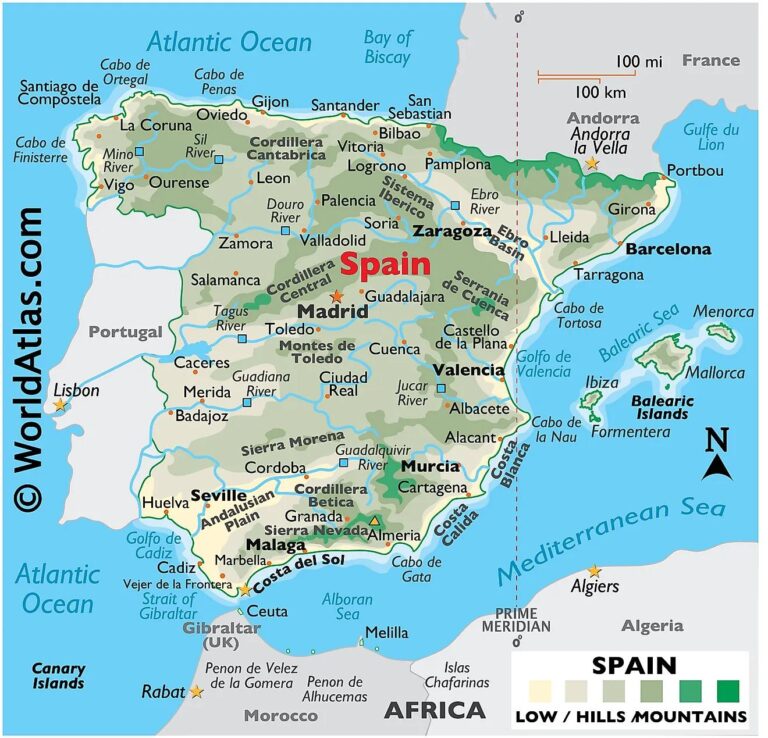Why Dinner at 10 PM Is the Norm in Spain: Insights from Times of India
In contrast to the early evening meals common across much of the world, Spain has long embraced a later dining schedule, with dinner often taking place around 10 PM. This cultural peculiarity has piqued the curiosity of many, prompting a closer look into the historical, social, and climatic factors that contribute to Spain’s unique meal timings. According to a recent report by the Times of India, this late-night dining tradition is deeply rooted in the country’s lifestyle and customs, reflecting broader rhythms of daily life in Spanish society. Here, we delve into why 10 PM has become the standard dinner time in Spain and what it reveals about the nation’s cultural identity.
Cultural and Historical Roots Behind Late Dinner Traditions in Spain
Spain’s habit of dining late is deeply intertwined with its cultural and historical landscape. Traditionally, the Spanish day was structured around agrarian lifestyles, where workers would begin their mornings early and pause during the hottest afternoon hours for a siesta. This midday break, although less common today, shifted typical meal schedules, pushing lunch to around 2 or 3 pm and consequently delaying dinner until 9 or even 10 pm. Moreover, the Mediterranean climate encourages a more relaxed pace, where families and friends prioritize social interaction and extended meals after cooler evenings set in.
Another key influence stems from historical urban living patterns, particularly in cities like Madrid and Barcelona. The vibrant nightlife culture, combined with late business hours, means that many locals finish their workday late and naturally gravitate toward dining later. The table below highlights key periods and cultural factors shaping Spain’s meal timings:
| Time Period | Influencing Factor | Effect on Dinner Timing |
|---|---|---|
| Pre-20th Century | Agrarian Work Schedule & Siesta | Dinner after 9 pm |
| Mid 20th Century | Urbanization & Industrial Work Hours | Dinner pushed to 10 pm |
| Modern Era | Social & Nightlife Culture | Consistent late dinners |
- Climatic influence: Warm afternoons promote late evening meals
- Social fabric: Emphasis on community and prolonged dining experiences
- Economic rhythms: Extended business and social hours into the night
Impact of Spain’s Unique Daily Schedule on Meal Timing and Social Life
Spain’s distinctive daily rhythm significantly influences both meal timing and social dynamics. The late dinner hour, often around 10 pm, is not just a matter of preference but a reflection of a culturally ingrained schedule that stretches the day well into the evening. This unique timetable is largely driven by the traditional siesta, a midday break that shifts work and meal hours forward. Consequently, Spaniards enjoy elongated afternoons, with meals spaced further apart. The result: lunch at roughly 2 pm, followed by a later dinner, enabling families and friends to gather leisurely after sunset.
Social life in Spain thrives under this late schedule. Evening activities kick off late, meaning restaurants and bars fill up much later than in many other countries. Key social customs include:
- Tapas culture that encourages long, relaxed gatherings starting around 9 pm.
- Outdoor plazas and city squares buzzing well into the night, fostering community and conversation.
- Work-life balance adjusted to favor social interaction and family time during the cooler evening hours.
| Typical Spanish Meal Times | Approximate Time | |||||||||
|---|---|---|---|---|---|---|---|---|---|---|
| Breakfast (Desayuno) | 8:00 – 9:00 am | |||||||||
| Lunch (Comida) | 2:00 – 3:30 pm | |||||||||
| Dinner (Cena) | Experts Suggest Adjusting Dinner Hours for Better Health and Work-Life Balance
Health professionals and lifestyle experts are increasingly advocating for a shift in dinner schedules, emphasizing the benefits of eating earlier in the evening. Aligning meal times closer to typical circadian rhythms can significantly improve digestion, sleep quality, and overall metabolic health. Studies show that consuming the last meal too late-such as the customary 10 pm dinner in Spain-can disrupt the body’s natural fasting period overnight, potentially leading to weight gain, acid reflux, and impaired insulin sensitivity. Key recommendations from nutritionists include:
Balancing late work hours and social culture with health needs has prompted experts to propose flexible dining windows tailored to individual lifestyles. The table below summarizes the potential health impacts connected with early versus late dinner timings:
Closing RemarksAs Spain’s late dinner hour continues to intrigue both locals and visitors alike, understanding its cultural and historical roots offers valuable insight into the country’s unique lifestyle. While 10 pm might seem unusually late by global standards, it reflects a harmonious blend of tradition, climate adaptation, and social customs that define Spanish life. As the Rest of the world keeps pace with different routines, Spain’s dinner time remains a vibrant emblem of its identity-proving that mealtime is about more than just food; it is about community, rhythm, and cultural heritage. |




